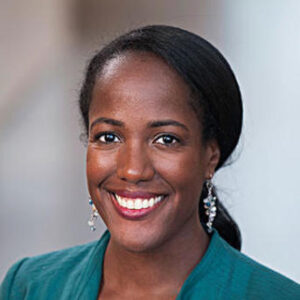Population Research Discovery Seminars

Measuring and Modeling the Impact of Partisanship Differences in Health Behaviors on COVID-19 Disease Spread
Audrey Dorélien, Sociology, University of Washington
Joined by Chris Soria, Demography PhD Student, University of California Berkley
Parrington Hall Room 360
To Join By Zoom: Register HERE
11/01/2024
12:30-1:30 PM PT
360 Parrington Hall
Co-Sponsor(s):
The impact of non-pharmaceutical interventions and protective health behaviors, such as the use of face masks and physical distancing, on COVID-19 dynamics is well-documented, but sub-group heterogeneities in the adoption of these behaviors remains understudied. In this paper, we describe partisan differences in the adoption of protective health behaviors, and model how these differences can impact the dynamics of COVID-19. We leverage uniquely detailed survey data on partisanship, contact rates, mask usage, and vaccination rates to provide empirical evidence of partisan differences in these health behaviors. We show that partisan differences in health behaviors are greater than racial and gender differences. We incorporate these observations into a Susceptible-Infected-Recovered (SIR) model framework, that explicitly incorporates partisanship, to identify the most significant mechanisms driving disease spread. We compare a population without modeled group behavior differences to one that explicitly models differing health behaviors reflecting Republican and Democrat divides. Our findings emphasize the importance of considering partisanship in modeling frameworks, for guiding public health policy and the design of effective mitigation measures, and highlight the role of partisan identification in shaping the course of future pandemics.
Audrey Dorélien is an associate professor in the Sociology Department at the University of Washington. Previously she taught at the Humphrey School of Public Affairs at the University of Minnesota for 10 years.
Dorélien’s research agenda strives to elucidate how human population dynamics and behavior intersect with environmental conditions to affect health. Her work describes demographic and health patterns and attempts to identify causal factors responsible for these patterns. The first strand of her research focuses on the effects of early life exposures (i.e., disease/nutrition/climate) on health both in the United States and in Sub-Saharan Africa. Second, she analyzes how human behavior and population dynamics affect the spread and severity of infectious diseases. Third, Professor Dorélien has conducted research on spatial demography/ urbanization with a focus on health and climate change vulnerability. Her research has appeared in Population Development Review, Demography, Population Health Metrics, Biodemography and Social Biology, Demographic Research, and PLoS ONE.
Chris Soria is a PhD student in Demography at the University of California, Berkeley, where he previously earned a BA in Sociology. His research focuses on how social networks affect health and mortality, particularly in relation to cognitive health and dementia among aging populations. Soria uses causal inference methods to study the influence of personal social networks on cognitive aging and health disparities. Additionally, his work examines mortality and disease inequalities among different groups, including political partisans, socially isolated individuals, and migrants. One of his goals is to understand how diversity within social networks can uniquely and positively impact health outcomes.